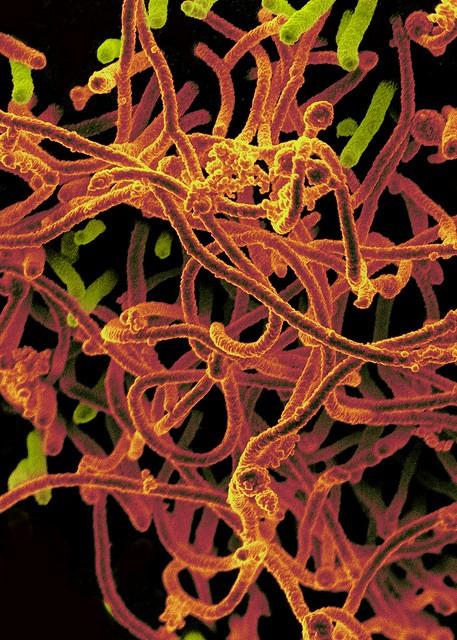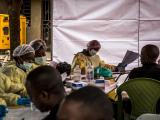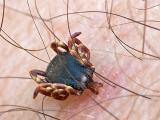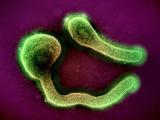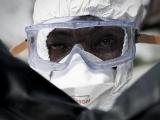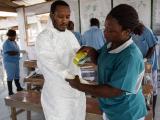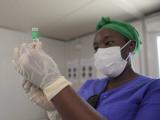The World Health Organization (WHO) today said the ongoing Ebola outbreak in the Democratic Republic of the Congo (DRC) does not, at this time, constitute a Public Health Emergency of International Concern (PHEIC).
"At this point, it's not cost beneficial to declare an international state of emergency," said Robert Steffen, MD, the WHO's chairman of the emergency committee that made the decision. Steffen made the announcement on the heels of an International Health Regulations meeting held earlier today in Geneva.
Steffen was joined by WHO Director-General Tedros Ghebreyesus PhD, and Peter Salama, MD, the WHO's deputy director-general of the emergency response program, in a media briefing.
Jeremy Farrar, MD, director of the UK-based Wellcome Trust, said in a statement posted on Twitter today, "The decision by WHO not to call a public health emergency of international concern is the right one for the time being. The response by the DRC authorities and the WHO has been swift and decisive."
"However," he added "we can't predict how the outbreak will progress, and the WHO must keep the situation under frequent review and not hesitate to declare a PHEIC if the situation shows signs of deteriorating."
The WHO emergency committee met nine times during the 2014-2016 Ebola outbreak in West Africa, which involved more than 28,000 cases and 11,000 deaths.
45 cases, 25 fatal
Tedros recalled what he saw on the ground in DRC just days after the first cases were confirmed by health officials.
"We were really encouraged by what we have seen, and how coordinated the response has been," said Tedros.
As of today, the DRC has reported 45 cases of Ebola, including 25 deaths. The first cases, 2 patients in the remote health zone Bikoro, were recorded 10 days ago, on May 8. Of the 45 cases, 3 involve healthcare workers (including 1 fatal case), and 14 have been confirmed through laboratory testing.
Both Tedros and Steffen emphasized how remote Bikoro, the epicenter of the outbreak is, describing it as reachable only by motorcycle. They estimated it will take several hours to move the vaccine from Kinshasa, where 7,000 doses are being held in cold-storage, to contacts of patients.
The director-general confirmed that ring vacation with Merck's rVSV-ZEBOV will begin in 2 days. Salama explained that, for each case, 100 to 150 contacts will be offered the vaccine, which means the first phase of vaccination could include as many as 8,000 to 10,000 people.
"The vaccination will take a matter of days, 1 to 2 weeks," Salama said. "The contacts have to be tracked down."
Case in city 'worrisome'
All cases but three have been in remote, rural areas, but a recent case in Mbandaka, a city of nearly 1.2 million people is a "worrisome" development, said Tedros. The two other cases reported in that city were in rural travelers who had been to a funeral of a sick relative.
The Congo River, which runs through Mbandaka, has been called a highway that connects thousands of people thought the DRC and neighboring countries. If more cases are found in Mbandaka, they could constitute a bigger threat to international spread.
Salama also addressed the issue of ZMapp, an experimental anti-Ebola infusion given to prevent the disease after exposure. The DRC has requested use of the drug, and Salama said the WHO will likely approve its use in the next several days, but doubted the feasibility of widely distributing it in Bikoro because of the technology required for infusions.
Salama said the WHO has designated $9 million so far to outbreak efforts and estimated a total of $26 million will be spent in the DRC in the coming weeks.
UK response, vaccine lessons learned
- Public Health England announced today that a UK Public Health Rapid Support Team is en route to the DRC to assist in outbreak efforts. The team, made up of epidemiologists and other scientists, expects to be in the DRC for 6 weeks.
- The Journal of Infectious Diseases published an 11-article supplement on the Sierra Leone Trial to Introduce a Vaccine Against Ebola (STRIVE), detailing lessons learned about Merck's VSV-EBOV during the 2014-2016 West African Ebola epidemic. Writing in a commentary on the issue, Anne Schuchat, MD, of the US Centers for Disease Control and Prevention, said the supplement was "a figurative manual of operations for how to build an airplane while flying it through a storm." The vaccine ended up being a safe "airplane," she said, as documented by data on 8,000 vaccine recipients.
See also:
May 18 WHO statement
May 18 Wellcome Trust tweet
May 18 Public Health England press release
May 18 J Infect Dis supplement
May 18 J Infect Dis commentary
